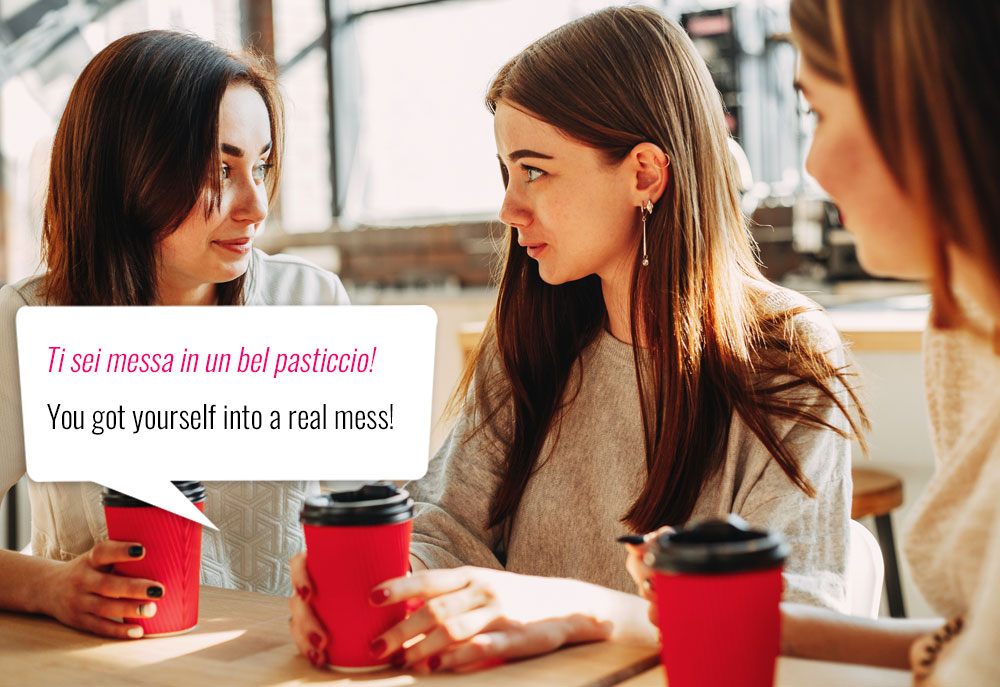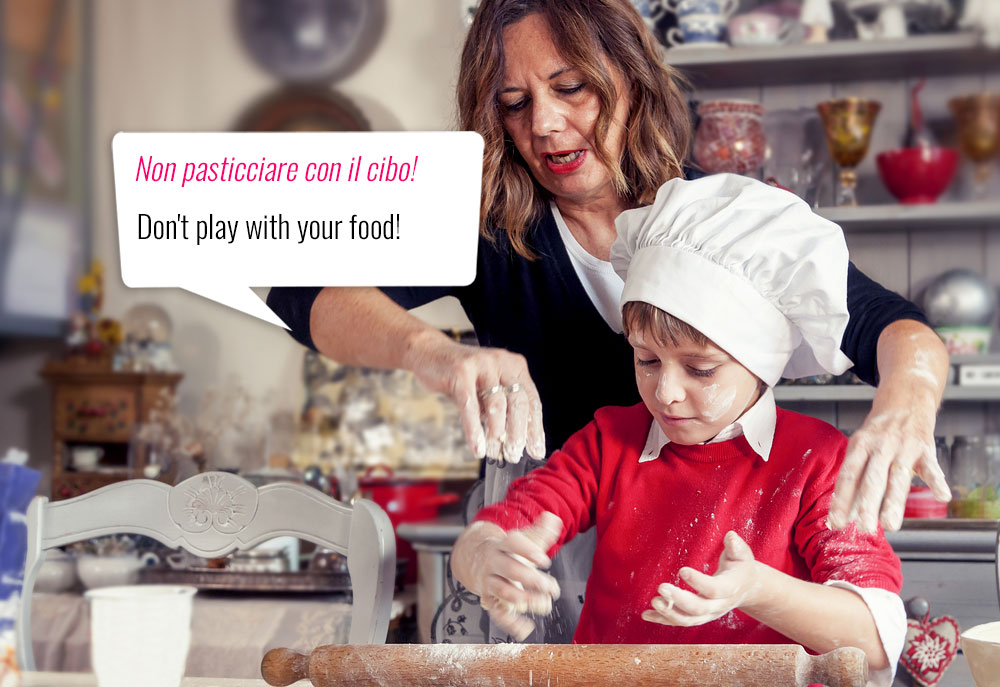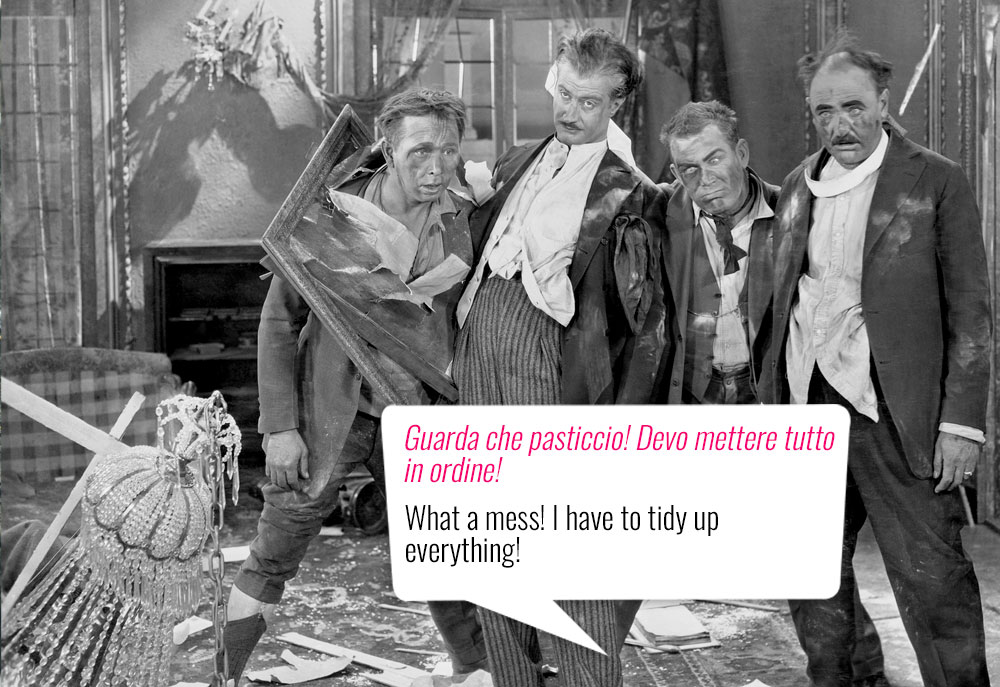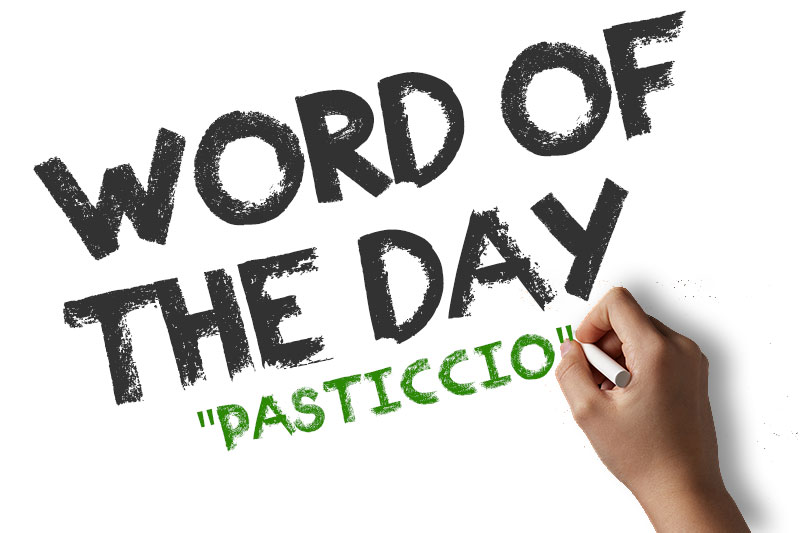Pasticcio (pah-stee-tchoh) comes from the vulgar Latin pasticium, in turn related to another late Latin word we know much better, pasta. It is attested in our beautiful language for the first time in 1525, a tad too late for our Dante to use it in his Commedia, but early enough to make it common when Caravaggio was around.
Fare un pasticcio means to mess something up, or to make a gross mistake: non arrabbiarti, ma ho fatto un pasticcio (“don’t get angry, but I really messed up”), but it can also stand for something very messy and unpleasant. Think back to your third grade years and those messy pages of homework you used to show your maestra: she likely thought — and perhaps said! — something on the line of mamma mia! Che pasticcio! (“Oh my, what a mess!”).
The verb pasticciare is often used when we want to say someone is doing something badly and absentmindedly, as in smettila di pasticciare, concentrati! (“stop messing around, focus!”).
Interestingly, pasticcio is also something you can eat! Yes, because we often use pasticcio to translate the English “pie,” but only when it’s savory! So, shepherd’s pie becomes pasticcio di carne and chicken pie may be a pasticcio di pollo.
If you’re prone to make a pasticcio, then you are a pasticcione, or pasticciona, of course: C’è farina dappertutto in cucina! Sei una pasticciona! (“there’s flour everywhere in the kitchen! You’re such a bungler!”).

— Ti sei messa in un bel pasticcio!
— You got yourself into a real mess!

— Non pasticciare con il cibo!
— Don’t play with your food!

— Guarda che pasticcio! Devo mettere tutto in ordine!
— What a mess! I have to tidy up everything!




























